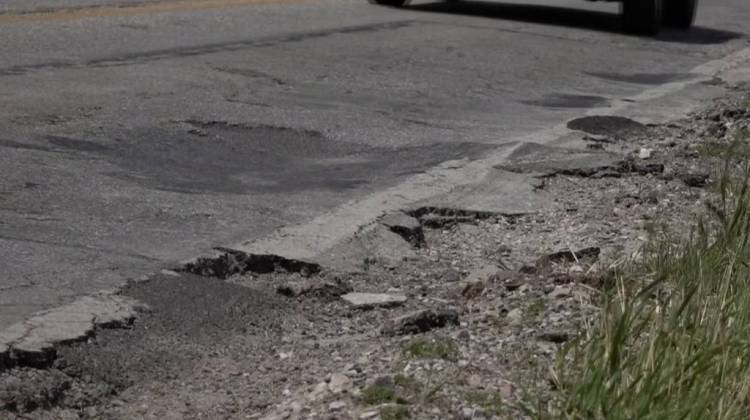As a dying wish to her mother, 48-year-old Winona Parker vowed to get her high school diploma.
It would take the Indianapolis woman four years, and half a dozen attempts, to make her career dream a reality.
“I would say to myself, ‘No matter what has come against me, I was now determined more than ever to achieve my goal,’” she recalls in an email.
Now, the former fast-food worker is enrolled in a pharmacy tech training program. It will allow her to be certified in about four months to help serve pharmacy teams on the front lines of the coronavirus pandemic.
Parker is part of a Washington Township Adult Education initiative helping Marion County residents who have been negatively affected by COVID-19 prepare for careers in high-demand industries. The free online training is funded by $1 million from the federal CARES Act, at a time when the pandemic has highlighted longstanding socioeconomic disparities.
Shawn Fremstad, a senior research fellow with the Center for Economic and Policy Research in Washington, says such training programs can help frontline workers. His recent report shows these workers are disproportionately women and Latinx or Black, like Parker.
“I think the COVID pandemic [...] got us particularly interested in knowing who was going to be most at-risk, who was in these frontline or essential jobs where the economy can’t run without them,” he says.
Fremstad says more than a third of workers in many frontline industries live in low-income families. And the Economic Policy Institute reports that in the first quarter of 2020, Black workers had the highest unemployment rate nationally — 6.3 percent — putting them at a disadvantage even before the pandemic.
Historically, high-risk, face-to-face jobs such as housekeeping, transit and fast food have high turnover rates, poor pay and fewer benefits, with higher insurance copayments, Fremstad says. Policy changes like increasing the minimum wage and allowing for unions can help, he adds, but so can career training programs.
Lara Pastore, assistant supervisor with Washington Township Adult Education, says the pandemic has hit Hoosiers without a high school diploma the hardest. “For someone who needs that high school credential or a short-term work certification, we're talking about a matter of weeks or months that can make life-altering improvements to their situation.”
The Indiana Department of Workforce Development reports more than 84,000 Marion County residents between 18 and 64 lack a high school diploma or equivalency.
“It should remind us more than ever that we depend on a diverse, working class, people typically without four-year bachelor's degrees, but who are working, doing the kind of work that we all depend on,” Fremstad says.
More Hoosier institutions are taking note.
This month, Indiana’s only predominantly Black higher education institution, Martin University, and Ivy Tech Community Colleges partnered to create more career development for Black and Hispanic students. They’re emphasizing short-term certifications and jobs in teaching, cybersecurity and technology to move workers into high-wage, in-demand careers.
The partnership also focuses on increasing the number of teachers of color by offering Ivy Tech students guaranteed admission into Martin’s School of Education.
“If high tides are really going to rise all ships, we have to do that with economic empowerment,” says Indianapolis Deputy Mayor of Community Engagement David Hampton. “Certainly employment leads to economic empowerment.”
He says the partnership aims to boost racial equality and inclusion statewide, which dovetails with Gov. Eric Holcomb’s goal for a more diverse and technology-based workforce.
Pastore says a partnership with Community Health is on the horizon, training certified medical assistants to serve the increased need in the pandemic. As burnout and fatigue hit the healthcare industry, she says high-school equipped students can fill employment gaps with certifications that average three months.
“From the employer standpoint, they are desperate for people to walk in the door with the skills,” she says.
Parker hopes to be one of them.
She passed the last portion of her GED in October, and was able to enroll in the pharmacy tech program. That puts her on a path for a job that could pay more than $49,000, according to federal data.
Parker can’t wait to be on the front line serving others.
“I am looking forward to a whole new world,” she says. “This program offered me hope.”
For more information about enrolling in Washington Township Adult Education’s free training, visit https://www.indyadulted.com.
This story was produced by Side Effects Public Media, a news collaborative covering public health.
 DONATE
DONATE








 Support WFYI. We can't do it without you.
Support WFYI. We can't do it without you.